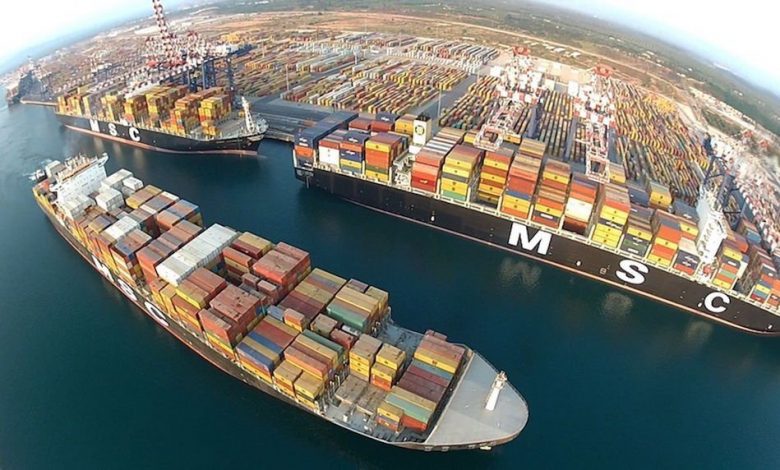Three reasons why global trade will reach its peak

Olaf Merk, a ports and shipping expert with the OECD, warns of very challenging times ahead.
Maritime transport is driven by what people consume, where things are produced and the energy that is needed for all this. In all three areas, we might be reaching a peak: shipping could be confronted with peak consumption, peak trade and peak fossil fuels.
Peak consumption
We are experiencing a shift from ownership to usage. We buy less stuff, instead we buy the right to use stuff when we need it; and this means that less stuff needs to be produced, and transported. Part of this is a question of form: instead of books we now have e-books, so more immaterial consumption. But the shift is more fundamental: instead of buying CDs, we buy access to an almost unlimited amount of music, via services such as Spotify. And this trend expands to more and more goods. A substantial sub-sector in shipping is the transport of cars. Car ownership rates are declining and car-sharing is on the rise. Even if car use might become more accessible to new middle classes in emerging countries, a lot of the new demand will take the form of car-sharing rather than individual car ownership. If there will be growth in car consumption, this will be more moderate than previous decades.
Peak trade
We might also face peak trade. We have reached the limits of global outsourcing. Much of this has to do with the changing face of the Chinese economy, the world’s factory over the last few decades, now shifting gear from export-led growth to an economic model driven by domestic consumption, facilitated by increasing labour costs. This is leading to more “near-shoring” and the emergence of regional trade blocks. Nobody knows exactly what will be the impact of 3D printing on production patterns, but it will surely nibble away at exports: production could become drastically more localised. Commodities might still be needed as the materials needed for the printing, but only to a limited extent if the circular economy would really take off: most of the components of the local production would then come from re-use and re-cycling.
Peak fossil fuels
Finally, we might witness peak fossil fuels. Apart from the actual future availability of fossil fuels like oil, the real constraint might prove to be the declining political and societal acceptability of these within the light of climate change. Various countries have announced the end of fossil fuels and have started to close coal power plants. Renewable energy often means local sourcing, in contrast to fossil fuels. Bulk carriers – carrying coal amongst other goods – and oil tankers represent an important part of the global fleet. More renewable energy will likely mean less maritime transport.
Shipping and ports both live in a bubble: there is huge overcapacity of ships and of terminal capacity. It might take a decade or more to reach a more balanced situation. The possibility of the three simultaneous peaks highlighted here should make anyone wary to add even more capacity.
This article first appeared on Olaf’s website Shipping Today.

Similar arguments were made before the stratospheric growth of the Chinese economy. African economies are still yet to truly takeoff and to assume that they will skip the consumer based economy of tangible assets is slightly naive. Global trade probably hasn’t peaked, the shape of global trade will change though.
Handsomely said. These ideas have also been, for long, reflected in the bi-annual shipping market review of the Danish ship finance which, to my understanding at least, is an industry standard in its own regard.
for those with a keen interest:
http://www.shipfinance.dk/en/SHIPPING-RESEARCH/Shipping-Market-Review